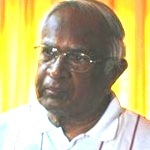The Future State Of The Nation: A Response To Dayan
I refer to the article by Dr Dayan Jayatilleka under the caption “Pre-Independence Day Thoughts 2015: The Future State Of The Nation” where he discusses the sentiments expressed by TNA politician Mr. Sumanthiran that the “full implementation of the 13th Amendment is no lasting solution.” He extrapolates from such sentiments to surmise that the removal of the roadblocks to the full implementation of the 13th Amendment is not enough for the TNA MP and that “they would not try their very best to make the 13th Amendment work. Because if it did they would not be able to prove their dogmatic politically fundamentalist position that “the full implementation of the 13th Amendment is no lasting solution. This of course is DJ’s surmise and it cannot be ascribed to Mr. Sumanthiran.

DJ asks what would be the final solution of Mr. Sumanthiran and the TNA. Call it federal or quasi federal but these are mere academic classifications. Constitutions are the work of negotiations between parties and they do not go on rigid academic classifications. Academics describe them after they are established.
DJ asks what would be the final solution of Mr. Sumanthiran and the TNA. He is hung up on the issue of the unitary versus federal status- a distinction used by political scientists to describe widely varying arrangements for the devolution of power. India is supposed to be a quasi-federal State for example. The crux of the issue is that in general political parlance the division of powers between the Center and the periphery cannot be altered unilaterally in a federal state but can be so altered in a unitary state where the Center is superior and it is the Center that devolves the power and a future government is not bound by the division of powers that prevails and could unilaterally change it. Where does this leave the Tamil people? Naturally the Tamil MPs and the Tamil people do not want such a situation for a Sinhala nationalist party coming to power in the future could unilaterally alter the division of powers to undermine the devolution fully or partially. So the Tamil people keep on asking for a federal state in order to safeguard the existing division of powers. My understanding is that the Tamils want this essential feature because they fear the election of nationalist political parties gaining power and changing the allocation of powers between the Center and the Provincial Council. Call it federal or quasi federal but these are mere academic classifications. Constitutions are the work of negotiations between parties and they do not go on rigid academic classifications. Academics describe them after they are established.Read More


